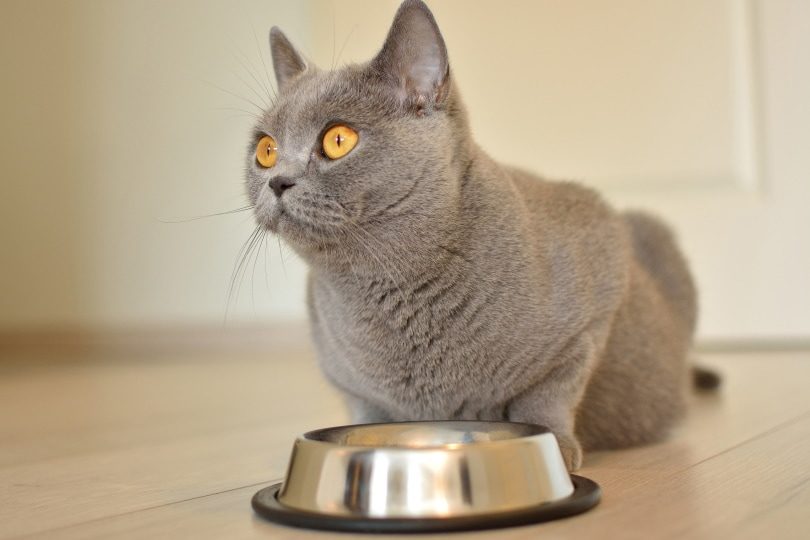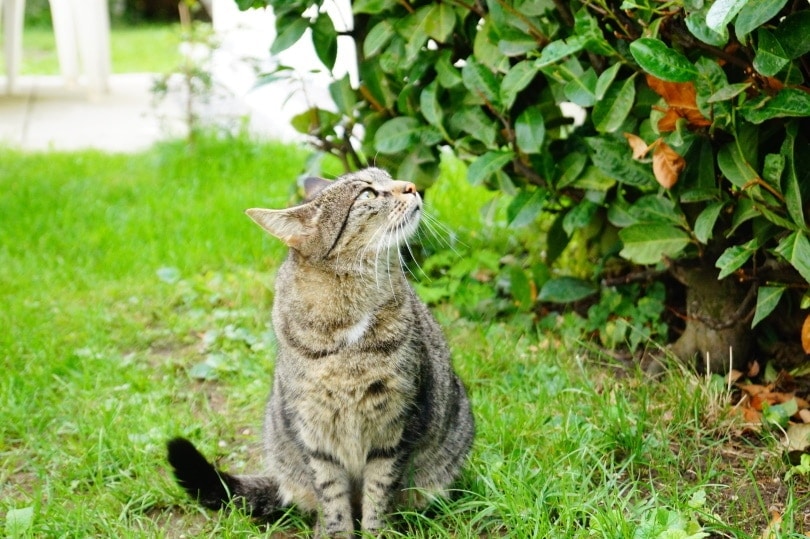Can Cats Eat Kiwi? Nutrition Facts & FAQ

Updated on

Kiwi is a delicious summer fruit so packed full of vitamins and minerals that nutritionists have named it a “superfood” due to all the health benefits it can provide in a human diet. While you indulge in this sweet juicy treat, you may find your feline friend looking up at you longingly (like toddlers – they always want whatever we have!).
Cats can indeed eat kiwi, as it’s nontoxic, and they may benefit from some of the vitamins and minerals. However, kiwi is not part of their natural carnivorous diet, so it is best to feed only small treat-sized amounts.
Is Kiwi Safe for Cats to Eat?
Some fruits are flat-out not safe to feed to your cat (grapes, citrus, and cherries), but kiwi is not one of them! Kiwi is perfectly fine to be offered to cats, and there is no risk as long as it is only fed in small amounts.
Suppose fruits like kiwi are incorporated into a cat’s diet as a staple. In that case, they will not meet their unique nutritional requirements. Cats are exclusively carnivorous, so protein and fat from meat will cater to their physical energy needs.
However, be aware that kiwi contains a particular enzyme called actinide, which is an allergen that can cause a reaction in both humans and sensitive cats. This enzyme is also the one responsible for the erosive properties of kiwi fruit. Kiwi is used to marinade tough meat for the ability to break down proteins. While this is helpful to aid digestion, in large amounts, it can be corrosive to the digestive tract. Think about the fuzzy feeling you get on your tongue after eating too many kiwis!

Do Cats Like Kiwi?
Since fruit is not part of a cat’s natural diet, you may find your cat has zero interest in eating any kiwi. Some cats are a lot more curious, and they may enjoy the texture of kiwi. However, due to their carnivorous diet, cat’s actually can’t taste sweetness. So if they enjoy kiwis, it’s not as a sweet treat!
While the actual fruit portion of kiwi may or may not be enjoyed by your cat, depending on their preference, the kiwi plant is a different story. A kiwi vine is from the same genus as a plant named silvervine. Silvervine is used in much the same way as catnip is and elicits the same responses. The kiwi vine shares some properties with the silver vine, and the aroma of the vine can attract cats, and they may look to rub up against the vine or dig up the plant.
If you are here because you are an avid gardener wondering if the kiwi in your garden is safe for your cat, yes it is, but you may want to keep your cat away for the sake of your plant!

Can Cats Eat Kiwi Skin and Seeds?
Some fruit seeds are unsafe for cats to consume due to toxic chemicals (pears, apples, and stone fruit), but kiwi seeds are perfectly safe. The seeds actually contain higher concentrations of vitamins and minerals such as vitamin C, K, and E, and folates. Seeds contain so many goodies as they need lots of energy when they are sown to grow into a new kiwi vine.
The kiwi’s skin is also safe to eat, and vitamins are also found in a higher density in the skin than they are in the flesh. Remember that the kiwi’s skin is quite dense, and in large pieces, it can pose a choking risk. Either peel kiwi or chop it into small pieces for it to be safe to give to your cat.
Before eating kiwi yourself or feeding it to your cat, make sure you wash the fruit well. Residue chemicals such as pesticides and fertilizers used in cultivation can remain on the skin after processing. A warm wash with vinegar water followed by a fresh water rinse can quickly rid kiwi of these potentially harmful toxins.

Health Benefits of Kiwi for Cats
The high fiber content of kiwi can aid in digestion. The enzyme we mentioned earlier, actinide, can also aid digestion by breaking down proteins. This can be especially beneficial for cats who have protein intolerances as it can help digest protein in their regular diet.
Kiwi also has high water content. Cats often do not drink as much water as they need, and with the common kibble diet, moisture is lacking. Treats of kiwifruit can help to keep them hydrated.
In addition to these two key benefits, kiwis contain a large handful of vitamins and minerals that can be supplementary to your cats’ diet. Small healthy treats of kiwi may support your cat’s general immune system. Be sparse with your kiwi treats, as they do possess high amounts of sugar that can affect your cat’s blood sugar levels and metabolism in high doses.
Now that you know what you can safely feed your cat, it’s just as important to find a bowl that supports their health and well-being. With whisker-friendly bowls and a wide tray to catch any spills, our Hepper NomNom Cat Bowl is our favorite option.
Final Thoughts
Kiwi is safe for your cat to eat in small amounts, and it may even offer some health benefits from all its wonderous properties. However, fruit is not needed in a cat’s diet, and high amounts can throw out a nutritional diet. Make sure kiwi is reserved just as a treat!
Featured Image Credit: Piqsels










